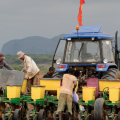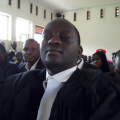THE WITNESS
Chinese farms in Uganda Disappoint, with little to show after fanfare
Published
6 years agoon
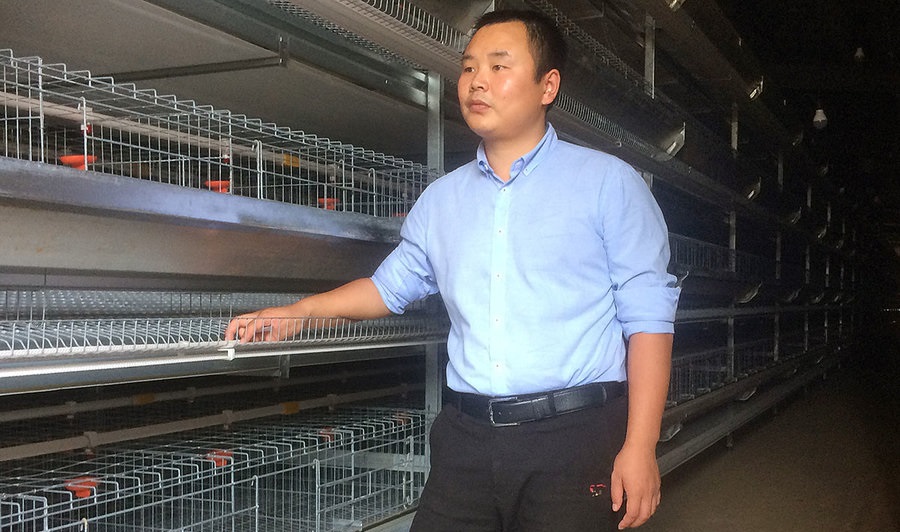
Chinese agricultural investments in Africa have sparked fierce controversy, excoriated as colonial plunder or hailed as productive and beneficial to local farmers. But the picture here in Luwero, Uganda, 50 miles north of the capital, is rather one of inaction and incompetence.
At the first commercial Chinese agricultural operation in Uganda, the land lies idle and overgrown. First came mushrooms, then fish, pigs, and grains – all tried on soil that the owners found ill-suited to their attempts. At a different 600-acre farm, a promised 25,000 jobs have yielded about a hundred, and the handling of the wetlands has made it nearly impossible for locals to graze their livestock.
There is a false impression that Chinese companies control huge tracts of African land to grow crops to feed Chinese consumers. But researchers have found no Chinese companies exporting rice or other cereals back home. Yet there is also no way of telling how many businesses Chinese farmers have here because the government does not keep accurate records, says Josh Maiyo, an expert in Chinese-Ugandan relations.
“So-called Chinese investors … bandy around these huge figures and African leaders are very happy to hear them,” says Dr. Maiyo. “Africa is seen as the Wild West in China.”
Lubenge, Luwero District, Uganda
The first Abel Mukalazi knew of the land grab was when he saw workers erecting a barbed wire fence around the pasture where his family had grazed their cattle for half a century.
He went to the police. They told him that a Chinese company, Kehong Group, had secured a lease on the land, pledging to build a giant rice farm employing 25,000 people.
Three years later, Mr. Mukalazi looks out over the barbed wire at empty fields of rough grass stretching across the valley – not a blade of rice in sight – where the wetlands used to be. “They are doing nothing with that land,” he snorts. “Just messing us up.”
Rising Chinese agricultural investments in Africa have sparked fierce international controversy, excoriated by critics as colonial plunder and hailed in Beijing as productive and beneficial to local farmers. The view from Luwero, 50 miles north of the Ugandan capital, Kampala, suggests that neither version is accurate. The picture here, at two different Chinese-owned farms, is rather one of inaction and incompetence.
Such disappointing results are “not unusual at all” among Chinese agricultural investments in Uganda, says Josh Maiyo, an expert in Chinese-Ugandan relations at the University of Radboud in Nijmegen, Netherlands. “Very often they do not pan out” as promised, he adds.
When President Yoweri Museveni came here in 2016 to inaugurate the China-Uganda Agricultural Industrial Park, managed by Kehong, he lauded the project as “an important instrument of transforming the economy. What was forest is going to turn into a city.”
At the launch, Luo Heng, the Kehong president, pledged $220 million of investment to create 25,000 jobs, “agricultural technology training, crop planting demonstrations … poultry and livestock processing and an agricultural mechanization service.”
There is little evidence yet of such huge investment. Today the farm employs just 100 Ugandan laborers, Kehong finance manager Liu Jianghua says in an interview in his office, situated in the only habitable building yet constructed – a low three-sided structure around a sparsely planted courtyard that houses 10 Chinese employees and a canteen serving them Chinese food.
A dozen of those labourers could be seen on a recent visit to the farm, tilling a field in preparation for maize planting. There was no sign of the promised “agricultural mechanization.” They were wielding simple hoes.
Kehong has a 99-year lease on 600 acres of wetland but has planted only six acres of rice in each of the four growing seasons since the company moved in, according to Mr. Liu. “It has been very dry” for the past two years, he says. “The rain has not been coming” heavily enough to flood the paddy fields and grow rice, as planned, for the local market.
Local agricultural officials say the rains have been sufficient for local farmers to grow their crops, and Kehong is preparing to grow maize on 300 acres of its land in order to feed the 100,000 egg-laying chickens that Mr. Liu says will arrive to supply the local market with 85,000 eggs a day.
Peter Ford/The Christian Science Monitor
Liu Jianghua is a finance manager for the company that leased 600 acres of wetland here about three years ago in Luwero district, Uganda, for farming and livestock production. On Aug. 17, 2019, he inspects the battery cages that are waiting for 100,000 chickens.
They will be housed in two long metal sheds, already fitted with battery cages imported from China. For the time being, however, the only poultry being raised are a few hundred broiler chicks in a ramshackle hut.
Legal, according to the court
Mr. Mukalazi challenged Kehong’s occupation of the wetland, but a local court ruled that his family’s lease had expired when – unbeknownst to him – a land broker secured the new 99-year lease and sold it on to Kehong.
Mr. Mukalazi is especially angry because irrigation earthworks that Kehong has carried out, including the excavation of a large trench, have drained the swamp on adjacent land that he owns, making it impossible to water his cattle in the dry season.
“Now the wetland water drains first into their dam,” he complains, standing beside a small pond, its surface dotted with lily pads, which is the only water source on his land. “This pond is less than half the size it used to be.”
Mr. Liu, Kehong’s financial manager, says his company has installed a tap and basin just inside its fence so as to allow neighbouring farmers access to water. But the single tap can be reached only by ducking under barbed wire – impossible for cows – and the water has to be carried in jerrycans back to the animals. This is totally impractical, Mr. Mukalazi points out.
He is not the only one to suffer. On the other side of the Chinese-owned farm “the swamp doesn’t hold water anymore,” says James Wandira, who was head of the district council when Kehong occupied its land. “Grazing animals has become impossible; some people have had to move away and others graze [their cows] now on their small plots of land, which is not sufficient.”
And it is not only farmers who have lodged complaints. Last March a fiberboard factory downstream from the Lubenge wetland found that its well had run dry, according to James Kunobere, a district environmental officer who refused Kehong permission to expand its operations because the swamp “is a refuge for our farmers in the dry season.”
On wetlands, little success
Similar accusations of wetland draining were levelled against Hanhe, another Chinese farm near Luwero and the first commercial Chinese agricultural operation in Uganda, which was set up in 2011.
Hanhe too was launched with much fanfare (President Museveni visited the farm in 2014 to lend his imprimatur) and Chinese government funding from the China Development Bank amid ambitious dreams of exporting mushrooms to China and the world. Later the owner, Qiu Lijun, and his wife, Zhou Lisha, tried farming fish; growing rice, maize, and millet; and raising pigs.
All their efforts, though, came to naught. Their fishponds, their crops, and their animals were washed away in repeated floods. Today the farm lies idle and overgrown, its buildings deserted, its agricultural machinery abandoned and rusting in the long grass, the silence broken only by an occasional bleat from one of the goats that two local villagers have installed in a disused pen.
The owners gave up in 2016, explains Ms. Zhou in a telephone interview. “We failed to make our money back,” she says. “The land is wetland and suffers from floods. We were not aware of that because we came to the place in the dry season when there was no water. But floods destroyed our crops and our gardens.
“Also the land abounds in clay, so it is hard to grow things in it. We struggled to fight with the land but the floods were a big problem,” Ms. Zhou says. “Sometimes we could not even get to the farm.”
She and her husband have not given up the land they leased, and are thinking about processing agricultural products rather than growing them, Ms. Zhou said. “But there is no prospect of the farm ever realizing the potential that [its owners] claimed for it,” points out Dr. Maiyo, who wrote his Ph.D. dissertation on Hanhe.
Expectations vs. reality
At the height of Hanhe farm’s activity its owners were cultivating only 70 of the 400 acres they had leased from the government. But Western accounts estimated their landholding at 100,000 acres – 250 times the real figure.
That put it in the ranks of what Deborah Brautigam, who heads the China-Africa Research Initiative (CARI) at Johns Hopkins University, has branded “zombie land-grabs” – non-existent or grossly exaggerated Chinese agricultural investments. It is not uncommon for Chinese firms themselves to be the source of such exaggerations, inflating the size of their landholdings to impress potential investors back home.
Such reports feed the false impression that Chinese companies are leasing or buying huge tracts of African land on which to grow crops to feed Chinese consumers. Although Sinochem, a Chinese state-owned firm, has leased 120,000 acres to develop a rubber plantation in Cameroon, researchers at CARI have found no Chinese companies exporting rice or other cereals back home.
Professor Brautigam’s research shows that, rather, Chinese farms in Africa serve local markets; China devotes 12% of its overseas agricultural investment to Africa but buys only 2% of its food from the continent, according to a recent USDA report based on official Chinese figures.
There is no way of telling how many businesses Chinese farmers have set up in Uganda, says Dr. Maiyo, because the government does not keep accurate records, but he believes they number in the double digits.
Most of them, says Zhou Hang, who teaches at the School of Oriental and African Studies in London and who also studies Chinese investments in Uganda, are small affairs.
They raise rice, Chinese vegetables, and chickens that they sell to Chinese restaurants and the canteens set up by Chinese enterprises in Uganda employing large numbers of Chinese nationals, such as telecom giant Huawei and road construction firms, he adds.
More ambitious projects are generally less successful, according to Mr. Zhou. “The majority of big Chinese agricultural projects in Africa have not lived up to expectations – neither the Chinese government’s hype nor the way the Western media portrays them,” he says.
Get the Monitor Stories you care about delivered to your inbox.
“Africa is seen as the Wild West in China,” says Dr Maiyo. “So-called Chinese investors … bandy around these huge figures and African leaders are very happy to hear them. They acquire large tracts of land for a song and then go back to China to secure investment,” but often the money does not materialize.
In Luwero, the result is disillusion. “These Chinese companies, they give the impression that the area will completely change,” says Brian Luwaga, a journalist in Luwero who has followed the impact of Chinese investment in the region. “But then you don’t see anything.”
You may like
-
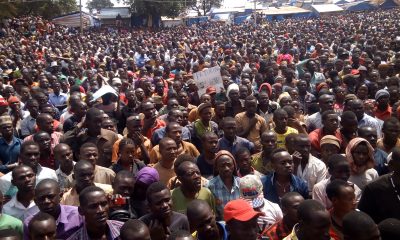

Uganda government ignores its directive on COVID evictions, evicts thousands of smallholder farmers, artisanal miners.
-
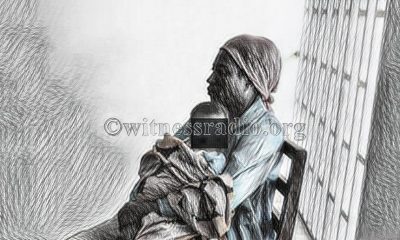

……Special Report abridged testimony…… How a pregnant woman was beaten by multinationals and local police over her land…
-
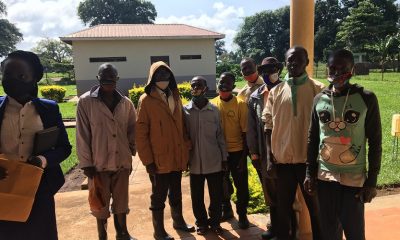

The criminal trial of 8 land rights defenders flops for the fourth time
-
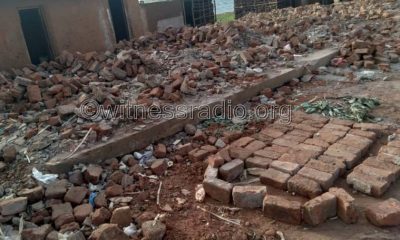

Industrial Park Development in Buikwe is dispossessing hundreds of Native Families…
-
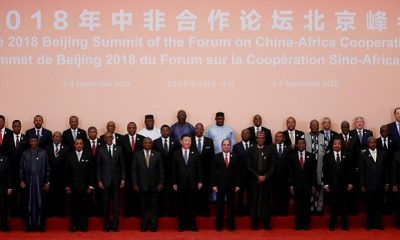

Beijing proposes seven-point plan for upgrading China-Africa cooperation
-
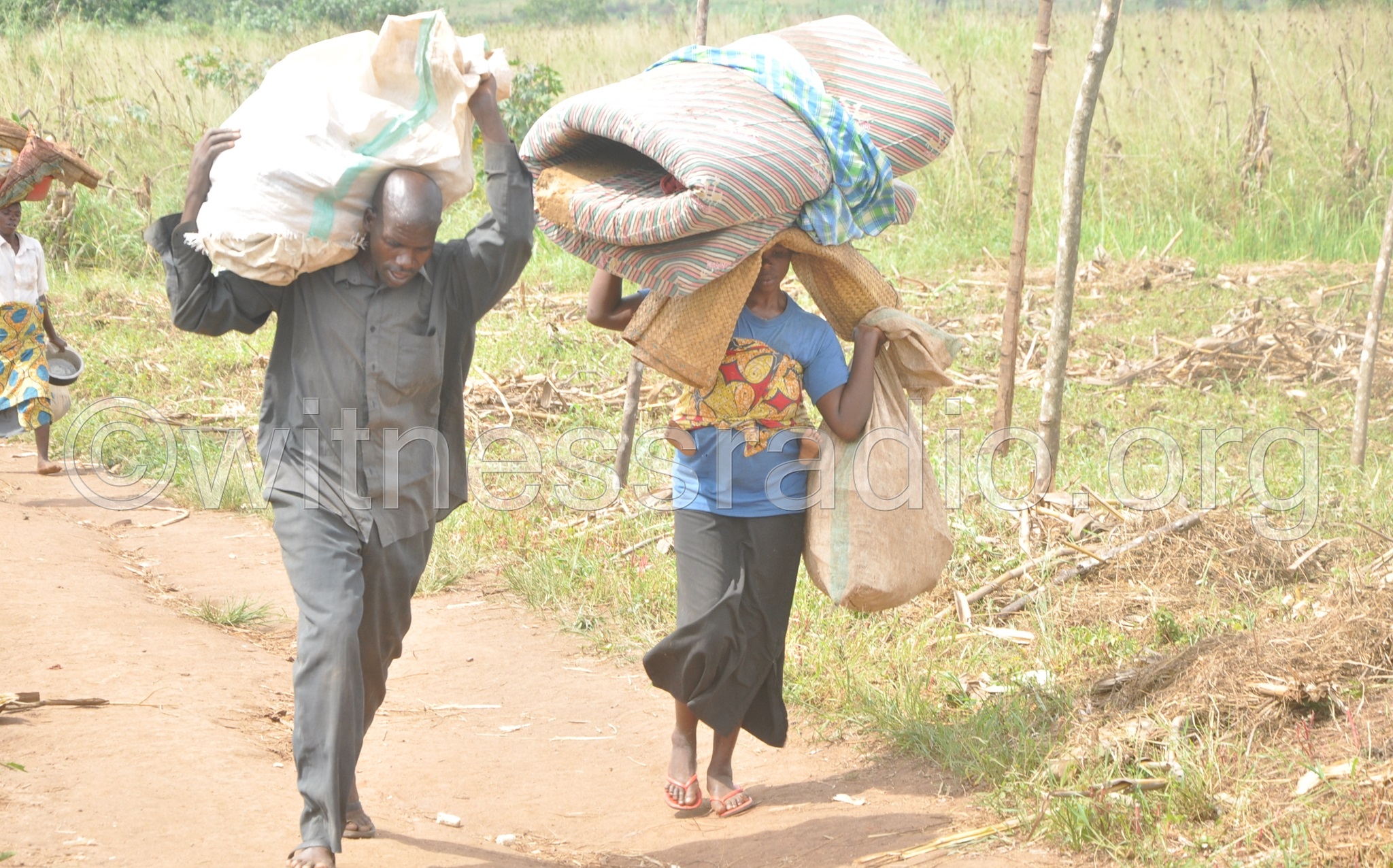

Land grabbers are ‘too powerful’, defied COVID-19 lockdown directives on land eviction – Gov’t
THE WITNESS
Enemies of the State: Resistance to the EACOP becomes a deadly task
Published
1 year agoon
July 3, 2024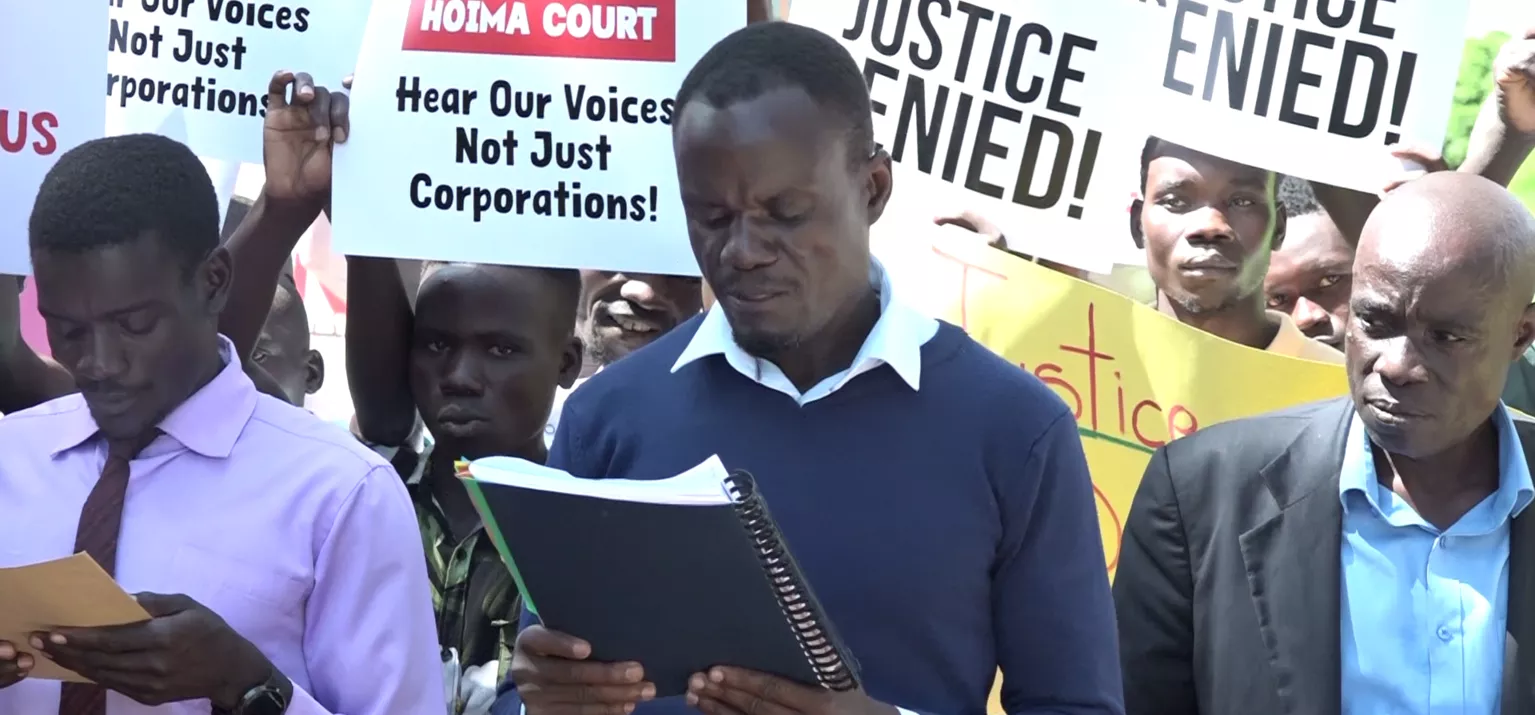
It is no secret: in Uganda it is badly about human rights. With the construction of the East African Crude Oil Pipeline, repression against lawyers, but activists and journalists is taking on new proportions. They are staged as enemies of the state. The human rights organisation Witness Radio reports from Uganda.
The morning of the 15th April 2024 in the court of the Ugandan city of Hoima did not go as usual: court officials, police officers and passers-by watched helplessly as a crowd led by the activist Fred Mwesigwa read a petition in the Hoima High Court: “We are deeply concerned about the recent court ruling that orders the expulsion of 42 families in the Buliisa district to make room for the Tilga project.” They protested against a court order of December 2023, which gave the government the green light to the community to expel the community for the oil production project. The community had previously refused to accept the government-intended compensation payments for their country, on which they live and from which they live.
The Buliisa case is just the tip of the iceberg of the many communities affected by oil production projects. In Uganda and Tanzania, the rural population in particular has to give way to a 30-metre-wide pipeline corridor, oil production fields, tank farms, infrastructure and safety zones around the East African Crude Oil Pipeline (EACOP). According to a study published in 2022 by the organisation Les Amis de la Terre, up to 118,000 people could be affected by resettlement along the pipeline route, including mainly farming communities.
Low discompensation
In a conversation with Witness Radio, those affected reported that they were no longer in a position to meet their basic needs due to insufficient compensation and inadequate resettlement plans. James 1, who was taken to the Kyakaboga resettlement camp, declared that the inhabitants had been provided with infertile land that was unsuitable for the cultivation of crops. In addition, the camps are overcrowded, which means that the residents are exposed to illness. He stressed that access to health services is particularly challenging. Pregnant women in particular are facing difficulties, as the nearest health centre is eight kilometres away. Tragically, James said, three pregnant womans would have lost their babies on their way to there.
“Their houses were set on fire, their ownness was plundered.”For the East African Crude Oil Pipeline, climate, nature and people need to give way
Uganda’s oil dilemmaControversies about the black gold
Black Gold from East AfricaConstruction of the EACOP crude oil pipeline is imminent
As in the case of the 42 households from Buliisa, who refused compensation from the government, many of the EACOP projects say those affected that the government did not adequately assess their land and property. Nevertheless, they were forced to release their land for the project. They criticised the fact that they were not sufficiently sensitised to the negative effects of the project. Instead, the government and the majority shareholders Totalenergies promised large compensation, prosperity growth and employment opportunities that have not yet occurred.
A study by Inclusive Development International also concludes that, in accordance with international standards, the government and TotalEnergies have systematically failed to involve the people affected by the project and civil society in the planning and providing them with low-threshold information. The study also states that when testing the environmental impact of Tilenga, Kingfisher and EACOP, it was found that the project promoters do not use the “best available techniques” to prevent the impact on the impact of ecosystems. The decision to use low-cost technologies for oil drilling and water-leading areas is therefore a predictable risk to the health and safety of local residents.
Opposition underesired
When the first land survey for the Tilenga project took place in 2020, many families expected to benefit from the project. Later, however, TotalEnergies aimed to acquire their country free of charge. In consultation with some real estate agents, local authorities, police and army, the company distributed almost 20,000 people in Kapapi (Hoima) in February 2023. In the course of this, women were also raped. Before the forced expulsion, the local police, in cooperation with the real estate brokers, had arrested those who criticised the land grab in order to intimidate the other members of the community.
Activists are presented as ‘anti-development’
The seven defenders of the plaintive families, Karongo Edward, Mulega Eria, Kataza Samuel, Rangira Stephen, Rubyogo Edward and Mbombo Stephen, were charged with a host of alleged crimes. In June 2023, after three to five months in prison, they were released on bail. However, as part of their bail pads, they must report regularly to the court in Hoima.
The criminalisation of land and environmentalists has become a common tactic by the Ugandan authorities in order to silence opposition and maintain impunity. This tactic does not only exist in Uganda, it is a global problem – especially in the context of large infrastructure projects.
According to the data from Witness Radio, in seven out of ten cases of evictions, defenders are subjected to targeted violence, torture and arbitrary arrests. They are often falsely charged with a large number of crimes ranging from domestic peace and attempted murder. At the end of June 2023, Witness Radio reported that more and more environmental and land-legal defenders who uncover questionable business are targeting state controls. From 2010 to 2023, more than 1,500 people. In connection with the pipeline, Witness Radio has documented 75 cases of arbitrary arrests, detentions and forced disappearances since the first construction work.
Opposition to the EACOP has become a mortal danger. Activists and human rights activists are confronted with hate speech, arrests, torture and death threats and are portrayed as ‘honsensible to development’ – on the grounds that they would promote the interests of Western countries.
The Resistance goes on
Ugandan activist Bob Barigye reports that the state security forces are using “false accusations” to arrest activists. “We are considered enemies of the state,” says Barigye. “The police are now preferting psychological torture because physical torture would create poor publicity for the oil pipeline project, which could deter investors and insurers. The government does not want to be in the international spotlight for the wrong reasons.”
Not only the project opponents, but also journalists in Uganda find it difficult to report on the EACOP projects: Gerald Tenywa is a Ugandan science journalist who has been reporting intensively on environmental protests for decades. In an interview with Drilled Media, he describes the difficulties in reporting on EACOP activists who criticise the construction of the pipeline. He cites the government’s intolerance to protests as a hurdle for journalistic work and stresses that in developing countries “oil and politics have almost always merged”.
“Oil and politics are almost always fused”
Emmanuel Okello works for the Uganda Radio Network in the Ugandan Albertine region. According to him, reporting is also made more difficult by the fact that the government and the companies involved keep the most important information about the oil projects under wraps. “A lot is claimed to promote these projects, including the development of the communities,” says Okello, “but this is not the case on the ground. People do not benefit from the projects, they only destroy their livelihoods. If you ask the government who exactly the beneficiaries they are talking about, there is no clear answer.”
It remains a difficult task to bring the voices of the affected communities into the public and to cope with the associated repression. It is also connected with obstacles to achieving justice through legal route. Thus, the court in Hoima rejected the application for the cessation of the evictions of the 42 families in Buliisa mentioned above.
The presentation of the plight of these communities, the protection of the environment and support for court cases are crucial, especially at a time when the space for civil society and media freedom in Uganda is becoming ever smaller. This requires cooperation with international groups and support for civil societies and media.
Source: www.iz3w.org
Related posts:

 The East African Court of Justice fixes the ruling date for a petition challenging the EACOP project.
The East African Court of Justice fixes the ruling date for a petition challenging the EACOP project.
 Put people above profits – Climate Activists urge Total to defund EACOP
Put people above profits – Climate Activists urge Total to defund EACOP
 Breaking: Criminal trial for seven community defenders opposed to EACOP/Tilenga project forced land eviction has been fixed.
Breaking: Criminal trial for seven community defenders opposed to EACOP/Tilenga project forced land eviction has been fixed.
 A reference filed by CSOs against the planned construction of the East African Crude Oil Pipeline (EACOP) is set for hearing.
A reference filed by CSOs against the planned construction of the East African Crude Oil Pipeline (EACOP) is set for hearing.
DEFENDING LAND AND ENVIRONMENTAL RIGHTS
Statement: The Energy Sector Strategy 2024–2028 Must Mark the End of the EBRD’s Support to Fossil Fuels
Published
2 years agoon
September 27, 2023
The European Bank for Reconstruction and Development (EBRD) is due to publish a new Energy Sector Strategy before the end of 2023. A total of 130 civil society organizations from over 40 countries have released a statement calling on the EBRD to end finance for all fossil fuels, including gas.
From 2018 to 2021, the EBRD invested EUR 2.9 billion in the fossil energy sector, with the majority of this support going to gas. This makes it the third biggest funder of fossil fuels among all multilateral development banks, behind the World Bank Group and the Islamic Development Bank.
The EBRD has already excluded coal and upstream oil and gas fields from its financing. The draft Energy Sector Strategy further excludes oil transportation and oil-fired electricity generation. However, the draft strategy would continue to allow some investment in new fossil gas pipelines and other transportation infrastructure, as well as gas power generation and heating.
In the statement, the civil society organizations point out that any new support to gas risks locking in outdated energy infrastructure in places that need investments in clean energy the most. At the same time, they highlight, ending support to fossil gas is necessary, not only for climate security, but also for ensuring energy security, since continued investment in gas exposes countries of operation to high and volatile energy prices that can have a severe impact on their ability to reach development targets. Moreover, they underscore that supporting new gas transportation infrastructure is not a solution to the current energy crisis, given that new infrastructure would not come online for several years, well after the crisis has passed.
The signatories of the statement call on the EBRD to amend the Energy Sector Strategy to
- fully exclude new investments in midstream and downstream gas projects;
- avoid loopholes involving the use of unproven or uneconomic technologies, as well as aspirational but meaningless mitigation measures such as “CCS-readiness”; and
- strengthen the requirements for financial intermediaries where the intended nature of the sub-transactions is not known to exclude fossil fuel finance across the entire value chain.
Source: iisd.org
Download the statement: https://www.iisd.org/system/files/2023-09/ngo-statement-on-energy-sector-strategy-2024-2028.pdf
Related posts:

 Breaking: over 350,000 acres of land were grabbed during Witness Radio – Uganda’s seven months ban.
Breaking: over 350,000 acres of land were grabbed during Witness Radio – Uganda’s seven months ban.
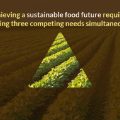 EBRD launches new agribusiness strategy
EBRD launches new agribusiness strategy
 30 civil society organizations have written to the World Bank Group demanding to publicly disclose the Africa Energy Approach paper.
30 civil society organizations have written to the World Bank Group demanding to publicly disclose the Africa Energy Approach paper.
 Over 600 million Africans lack electricity despite huge renewable energy potential
Over 600 million Africans lack electricity despite huge renewable energy potential
DEFENDING LAND AND ENVIRONMENTAL RIGHTS
Breaking: Three community land rights defenders from Kawaala have been arrested.
Published
3 years agoon
July 12, 2022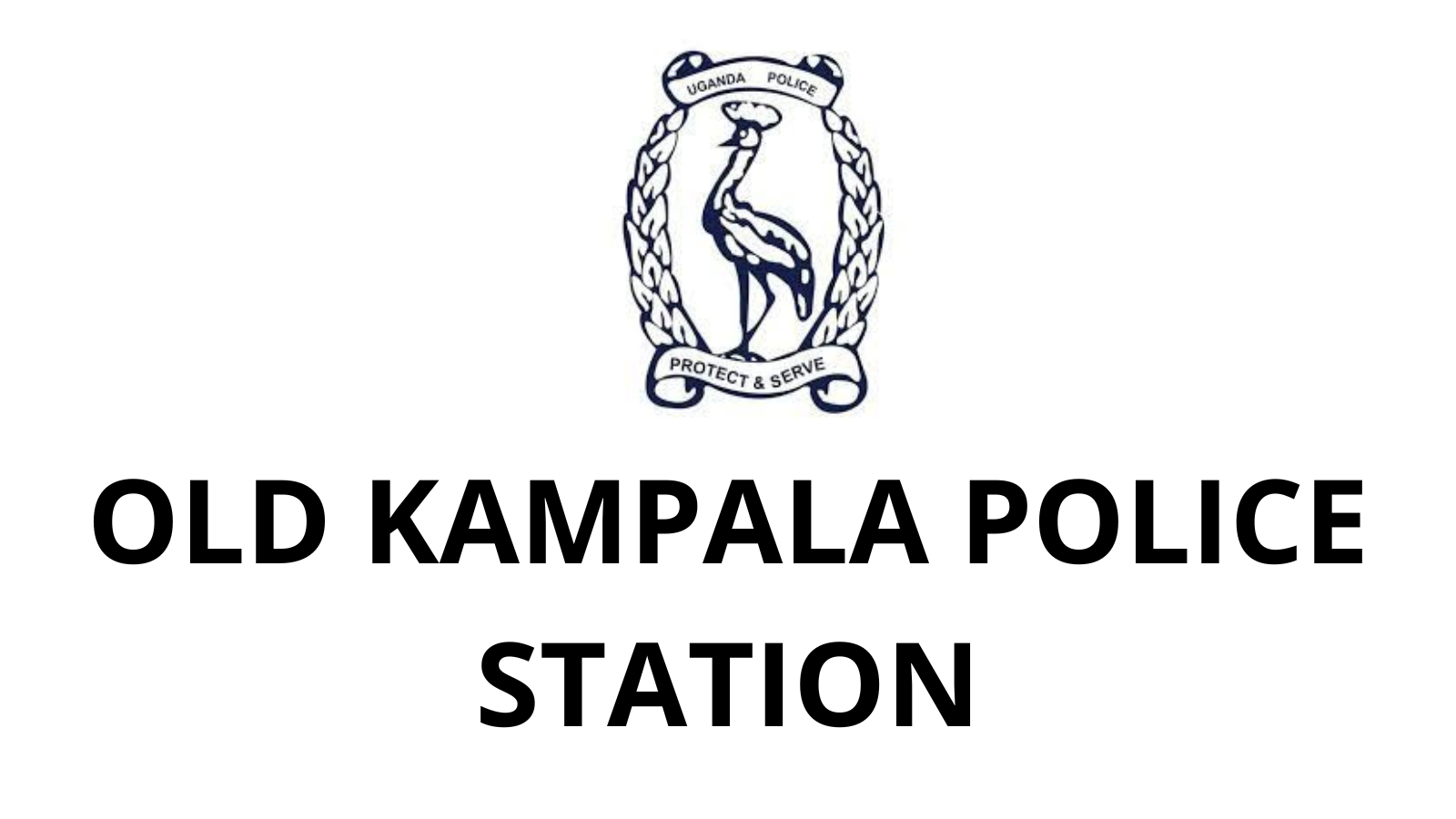
Breaking: Three community land rights defenders from Kawaala have been arrested.
By Witness Radio team
Police at Old Kampala Regional Police Headquarter have arrested three of the six community land rights defenders from Kawaala Zone II, Kampala suburb, and preferred a fraud charge before being released on bond.
Kasozi Paul, Busobolwa Adam, and Kabugo Micheal got arrested on their arrival before being taken inside interrogation rooms. They were questioned from 11:00 AM – 12:30 PM local time and later recorded their statements.
Section 342 of the Penal Code states that forgery is the making of a false document with the intent to defraud or deceive. It carries a three year imprisonment on conviction.
According to lawyers representing victims, defenders are arrested on the orders of the Deputy Resident City Commissioner (RCC) in charge of Rubaga Division Anderson Burora and accused them of fraud.
Resident City Commissioner is a representative of the president in the Capital City at the division level.
The charges are a result of continued resistance by Kawaala community seeking fair compensation and resettlement before Lubigi drainage channel is constructed. Since the first COVID outbreak in 2020, the victim defenders and others have been leading a pushback campaign to stop forced evictions by a multimillion dollars Kampala Institutional and Infrastructure Development Project (KIIDP-2) funded by World Bank. Kampala Capital City Authority (KCCA) is the implementor of the project.
This project first impacted Kawaala Zone II around 2014, when a channel diversion was constructed. The current planned expansion will widen that channel and require forced evictions across an area at least 70 meters wide and 2.5 km long.
The New Vision, a local daily of June 21st, 2022, quoted Burora accusing Kasozi Paul, one of the community land rights defenders from Kawaala Zone II of being a fraudster.
Witness Radio – Uganda challenges the deputy RCC Burora to produce evidence that pins the defenders on fraud instead of criminalizing the work of defenders.
“We warn Mr. Burora against using police to harass defenders who have openly opposed a project which is causing negative impacts on the community” Adong Sarah, one of the lawyers representing the defenders said.
The defenders got released on police bond as they are expected to report back to the police on Monday, the 18th of July 2022 at 11:00 AM local time.
Related posts:

 Kawaala community land rights defenders will report for police bond for the fourth time on 1st August.
Kawaala community land rights defenders will report for police bond for the fourth time on 1st August.
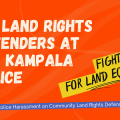 Six community land rights defenders from Kawaala have turned up at police for interrogations but, failed to take off
Six community land rights defenders from Kawaala have turned up at police for interrogations but, failed to take off
 Breaking: Kawaala Community land rights defender has been kidnapped.
Breaking: Kawaala Community land rights defender has been kidnapped.
 Breaking: A Kawaala community land rights defender kidnapped and taken to unknown destinations, others on the run.
Breaking: A Kawaala community land rights defender kidnapped and taken to unknown destinations, others on the run.

Activism on Trial: Despite the increasing repressive measures, Uganda’s EACOP protesters are achieving unexpected victories in the country’s justice systems.

Communities Under Siege: New Report Reveals World Bank Failures in Safeguard Compliance and Human Rights Oversight in Tanzania

A decade of displacement: How Uganda’s Oil refinery victims are dying before realizing justice as EACOP secures financial backing to further significant environmental harm.

Carbon Markets Are Not the Solution: The Failed Relaunch of Emission Trading and the Clean Development Mechanism

A decade of displacement: How Uganda’s Oil refinery victims are dying before realizing justice as EACOP secures financial backing to further significant environmental harm.

Govt launches Central Account for Busuulu to protect tenants from evictions

Activism on Trial: Despite the increasing repressive measures, Uganda’s EACOP protesters are achieving unexpected victories in the country’s justice systems.

Despite harsh repression, opposition to the EACOP pipeline in Uganda remains strong

Innovative Finance from Canada projects positive impact on local communities.
Over 5000 Indigenous Communities evicted in Kiryandongo District
Petition To Land Inquiry Commission Over Human Rights In Kiryandongo District
Invisible victims of Uganda Land Grabs
Resource Center
- LAND GRABS AT GUNPOINT REPORT IN KIRYANDONGO DISTRICT
- RESEARCH BRIEF -TOURISM POTENTIAL OF GREATER MASAKA -MARCH 2025
- The Mouila Declaration of the Informal Alliance against the Expansion of Industrial Monocultures
- FORCED LAND EVICTIONS IN UGANDA TRENDS RIGHTS OF DEFENDERS IMPACT AND CALL FOR ACTION
- 12 KEY DEMANDS FROM CSOS TO WORLD LEADERS AT THE OPENING OF COP16 IN SAUDI ARABIA
- PRESENDIANTIAL DIRECTIVE BANNING ALL LAND EVICTIONS IN UGANDA
- FROM LAND GRABBERS TO CARBON COWBOYS A NEW SCRAMBLE FOR COMMUNITY LANDS TAKES OFF
- African Faith Leaders Demand Reparations From The Gates Foundation.
Legal Framework
READ BY CATEGORY
Newsletter
Trending
-

 SPECIAL REPORTS AND PROJECTS4 days ago
SPECIAL REPORTS AND PROJECTS4 days agoActivism on Trial: Despite the increasing repressive measures, Uganda’s EACOP protesters are achieving unexpected victories in the country’s justice systems.
-

 NGO WORK1 week ago
NGO WORK1 week agoCommunities Under Siege: New Report Reveals World Bank Failures in Safeguard Compliance and Human Rights Oversight in Tanzania

